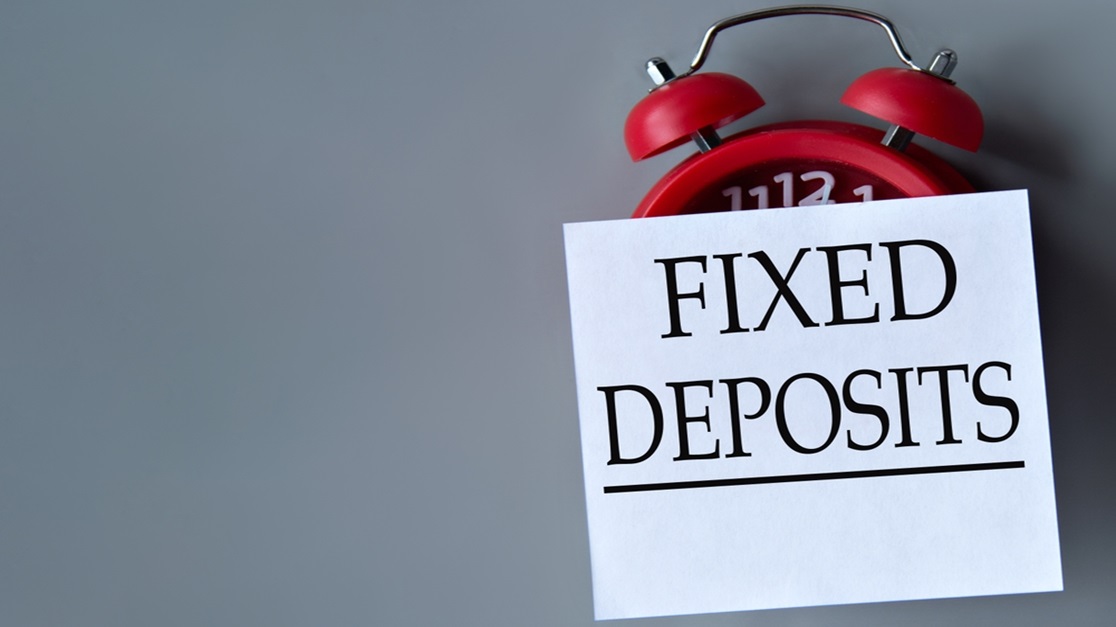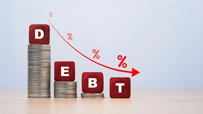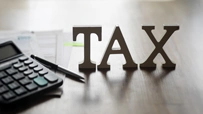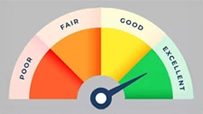What are Unclaimed Deposits and How to Claim Them?
September 03, 2025

Do you know that as on March 2024, there are unclaimed deposits of ₹78,213 crore lying in bank? It’s a 26% year-on-year jump! The rising cases of unclaimed deposits pose a serious concern, especially due to increase in account-related fraudulent activities. Taking note of this, we have come up with a detailed guide on how to claim deposits that are yet to be claimed. But first things first – let’s understand what exactly unclaimed deposits are.
What are Unclaimed Deposits?
As per RBI’s (Reserve Bank of India) definition, balances in savings / current accounts which are not operated for 10 years, or term deposits not claimed within 10 years from date of maturity are classified as “Unclaimed Deposits”. These amounts are transferred by banks to “Depositor Education and Awareness” (DEA) Fund maintained by the Reserve Bank of India. The depositors are, however, still entitled to claim the deposits at a later date from the bank(s) where such deposits were held along with interest, as applicable.
When Does Unclaimed Deposit Happen?
As per RBI, the increasing number of unclaimed deposits primarily stems from depositors not closing savings accounts or current accounts they no longer intend to use or failing to submit redemption claims for matured fixed deposits. Additionally, there are instances where accounts belong to deceased individuals and their nominees or legal heirs do not step forward to claim the funds from the bank. To assist such depositors or their nominee/legal heirs in identifying and reclaiming these deposits, banks provide a list of unclaimed deposits on their websites with identifiable details. The public is encouraged to review these lists and contact the relevant bank to claim the funds.
How Do Banks Handle Unclaimed Deposits?
- Banks transfer the funds to the Depositor Education and Awareness (DEA) Fund of the Reserve Bank of India (RBI)
- Banks are required to display a list of unclaimed deposits
- Customers can search for their unclaimed deposits using the UDGAM or bank portal
Which Funds are Credited to DEA Fund?
- Savings bank deposit accounts.
- Fixed or term deposit accounts.
- Cumulative/recurring deposit accounts.
- Current deposit accounts.
- Other deposit accounts in any form or name.
- Cash credit accounts.
- Loan accounts (after due appropriation by the banks).
- Margin money against the issue of Letters of Credit/Guarantees, or any security deposit.
- Outstanding items, such as: Telegraphic transfers, mail transfers, demand drafts, pay orders, bankers' cheques. Sundry deposit accounts, vostro accounts, inter-bank clearing adjustments. Unadjusted NEFT credit balances and other transitory accounts. Unreconciled credit balances related to ATM transactions.
- Undrawn balances in prepaid cards issued by banks (excluding amounts outstanding against travellers' cheques or instruments without a maturity period).
- Rupee proceeds of foreign currency deposits held by banks after converting foreign currency to rupees, as per current foreign exchange regulations.
- Any other amounts as specified by the Reserve Bank from time to time.
Where Can You Search for Unclaimed Deposit?
Let’s say you have unclaimed deposit with Ujjivan. In that case, you can search for unclaimed deposit here.
Another alternative would be searching via the UDGAM portal.
How to Check Unclaimed Deposit at UDGAM Portal
Here's how to use the portal to look for your unclaimed deposits.
Step 1: Visit website https://udgam.rbi.org.in/unclaimed-deposits/#/login
Step 2: Enter your phone number, password, captcha code. Enter the OTP received.
Step 3: In the next page, Name of Account Holder is mandatory field. Select the banks from the list.
Step 4: Enter minimum one input from the below search criteria.
- PAN
- Voter ID
- Driving License Number
- Passport number
- Date of Birth
Step 5: Click on search option. It will display if there is any unclaimed deposit account.
How to Register to Check for Unclaimed Deposit at UDGAM Portal
Step 1: Visit website UDGAM https://udgam.rbi.org.in/unclaimed-deposits/#/register
Step 2: Register your phone number. Enter your name.
Step 3: Set a password. Enter Captcha code
Step 4: Tick the Check box and click Next. Enter OTP to verify.
What is UDRN?
UDRN, which stands for Unique Debt Reference Number, is a distinctive identifier generated by banks using the Core Banking Solution (CBS). It is assigned to each unclaimed account or deposit transferred to the Depositor Education Awareness (DEA) Fund of the RBI. The number ensures that neither the account holder nor the bank branch maintaining the account can be identified by any third party.
What are the Documents Required to be Submitted for Processing the Claim?
a). Self-attested true copy of any of the following Officially valid documents (OVDs) as
a proof of identity:
I. Aadhaar
II. Driving License
III. NREGA Card
IV. National Population Registry Letter
V. Passport
VI. Voter ID Card issued by Election commission of India
b). ID Number of the Officially Valid Document (OVD) provided as proof of identity.
c). Other details:
I. Bank Account Number
II. Type of Bank Account Number-SB/CA/CC/OD
III. Account Name/Title
IV. Name of the Bank
V. Branch Name and Address
VI. IFSC code
B. Cancelled cheque or passbook for the destination account in case of transfer
request to another Bank account.
C. A complete set of KYC documents, i.e., ID proof, address proof and latest photograph.
Where Should the Claim Form to be Submitted?
The claim form to be submitted at branch along with complete documentation.
Who can Claim the Balance Transferred to RBI DEA?
An ETB (existing to bank) customer or nominee/legal heir in the case of a deceased customer
(as per Bank’s Death Claim Process) can claim the balance transferred to RBI DEAF.
What is the TAT (Turn Around Time) for the processing of claim payment?
Turn Around Time is T +1 (T refers to Today, the date of receiving complete claim form along
with required documents).
Final Thoughts
Unclaimed deposits, whether from inactive accounts or deceased depositors, represent a significant and growing issue for banks and their customers. However, efforts are being made to ensure these deposits are not lost by providing accessible lists on bank websites for easy identification and claims. It is crucial for depositors, their nominees, or legal heirs to stay proactive in checking for unclaimed funds to ensure that these deposits are not forgotten. By doing so, they can recover funds that rightfully belong to them, contributing to greater financial stability and security.
Looking to grow your savings faster? Ujjivan SFB offers a wide range of fixed deposit products. Select the FD of your choice and take a step forward to your financial goals. Alternatively, you can browse through Ujjivan SFB product suite - our wide range of financial products are designed to make your financial life better.
Disclaimer:
The contents herein are only for informational purposes and generic in nature. The content does not amount to an offer, invitation or solicitation of any kind to buy or sell, and are not intended to create any legal rights or obligations. This information is subject to updation, completion, amendment and verification without notice. The contents herein are also subject to other product-specific terms and conditions, as well as any applicable third-party terms and conditions, for which Ujjivan Small Finance Bank assumes no responsibility or liability.
Nothing contained herein is intended to constitute financial, investment, legal, tax, or any other professional advice or opinion. Please obtain professional advice before making investment or any other decisions. Any investment decisions that may be made by the you shall be at your own sole discretion, independent analysis and evaluation of the risks involved. The use of any information set out in this document is entirely at the user’s own risk. Ujjivan Small Finance Bank Limited makes no representation or warranty, express or implied, as to the accuracy and completeness for any information herein. The Bank disclaims any and all liability for any loss or damage (direct, indirect, consequential, or otherwise) incurred by you due to use of or due to investment, product application decisions made by you on the basis of the contents herein. While the information is prepared in good faith from sources deemed reliable (including public sources), the Bank disclaims any liability with respect to accuracy of information or any error or omission or any loss or damage incurred by anyone in reliance on the contents herein, in any manner whatsoever.
To know more about Ujjivan Small Finance Bank Products Visit:"https://www.ujjivansfb.in"
All intellectual property rights, including copyrights, trademarks, and other proprietary rights, pertaining to the content and materials displayed herein, belong
to Ujjivan Small Finance Bank Limited or its licensors. Unauthorised use or misuse of any intellectual property, or other content displayed herein is strictly prohibited and the same is not intended for distribution to, or use by, any person in any jurisdiction where such distribution or use would (by reason of that person’s nationality, residence or otherwise) be contrary to law or registration or would subject Ujjivan Small Finance Bank Limited or its affiliates to any licensing or registration requirements.
FAQs
1. What are unclaimed deposits?
Unclaimed deposits refer to funds in savings, current, or fixed deposit accounts that have not been claimed or withdrawn for an extended period. This can occur due to account inactivity or the death of the account holder without anyone coming forward to claim the funds.
2. How can I find unclaimed deposits?
Banks list unclaimed deposits on their websites, detailing identifiable information such as account numbers or the depositor's name. You can review these lists to identify any unclaimed funds associated with you or your family members.
3. What should I do if I find an unclaimed deposit in my name?
If you identify an unclaimed deposit that belongs to you, contact the bank listed on the website with the required identification and documentation (such as account details, ID proofs, or nomination documents) to claim the funds. Additionally, you need to fill out the Claim Form.
4. What happens to unclaimed deposits after a certain period?
If unclaimed deposits are not claimed within a specific time frame, typically after 10 years, they may be transferred to the bank's internal accounts or to the Reserve Bank of India (RBI) as per regulatory guidelines.
5. Can the nominees or legal heirs of a deceased account holder claim the deposit?
Yes, nominees or legal heirs can claim the unclaimed deposits of a deceased account holder by submitting necessary documents like the death certificate, proof of identity, and legal heirship certificate to the bank
Latest Blogs

APK Fraud: How One Wrong Download Could Empty Your Bank Account
May 13, 2025
Picture this. You’re sipping your evening tea when your phone rings.

Gold Loan LTV Ratio Explained (75% to 85%): What It Means for Borrowers
March 20, 2025
In June 2025, the Reserve Bank of India (RBI) introduced a significant relaxation for gold loan borrowers: the maximum Loan-to-Value (LTV) ratio for loans below ₹2.5 lakh was raised to 85%, up from the long-standing cap of 75%. Loans between ₹2.5 lakh and ₹5 lakh can now go up to 80%, while loans above ₹5 lakh continue under the 75% ceiling.

Good Debt vs Bad Debt: Learn the Difference
August 13, 2025
Every month, millions of Indians wait for the familiar debit alert, an EMI deducted from their account.

Got a Tax Refund? 5 Smart Ways to Put Your 2025 Refund to Work
August 13, 2025
For many taxpayers, there’s a unique sense of relief when a tax refund arrives.

Credit Score Not Improving? 5 Mistakes You Might Be Making
August 13, 2025
For most of us, a credit score feels like a silent judge sitting in the background of our financial lives.





